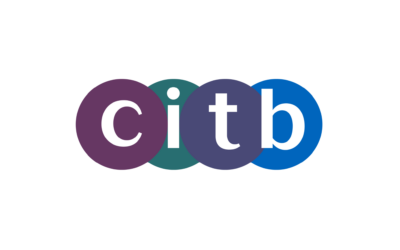In comparison the total numbers for the same period in the Finishes and Interiors Sector are:
Number of registered apprentices:
- England:
- Interior Systems Installer ST0388 = 90 (average annual starts 150)
- Plasterer ST0096 = 470 (average annual starts 629)
- England old framework (VQ outcome) = 62 Interior System, 240 Plastering
- Scotland = 88 Interior Systems, 70 Plastering
- Wales = 9 Interior Systems, 51 Plastering
- Completed VQ’s in Interior Systems = 1720
- Completed VQ’s in Plastering = 1380
A few factors will have contributed to the thriving numbers, including the Apprenticeship Employer Grant of £5,000, which was launched by the Scottish Government and SDS back in 2020-21. Additionally, those employers were supported by approximately £1.25m in CITB attendance grants. To date, there are 4,500 apprentices in Scotland with Levy-registered employers, who benefit from just over £90m in direct and indirect grants from CITB and SDS.
With much of the industry relying on word-of-mouth methods to recruit, it can be difficult to reach a more diverse range of applicants. Looking ahead, FIS is keen to support employers in this space, helping them create a more inclusive workplace, where the sector can benefit from the wide range of skills and traits.
George Swann FIS Skills and Training Lead says. “Wherever you are located in the UK, if your organisation is looking to take on apprentices now is the time to get vacancies up on platforms like Construction TalentView: Employer Registration and National Apprenticeship Services: Creating an Apprenticeship Advert to see existing vacancies go to: Find Apprenticeships Dryliners .
FIS is happy to support with any skills and training questions. Contact George on 07553 874838.
FIS Regional Meetings
With labour shortages and recruitment a key challenge within the sector, FIS is hosting a series of breakfast meetings to address the skills shortages. These events will focus on a collective response to labour shortages and attracting the next generation of workers.
See more news likes this
FIS expresses concern at CITB funding changes
CITB has announced a number of changes aimed at “streamlining our approach to more effectively help levy-registered employers access financial support for training. To do this we have reviewed our existing offer and we are making changes. These changes are not...
Feed in to FIS response to Call for Evidence on the Building Safety Regulator.
The House of Lords Industry and Regulators Committee, chaired by Baroness Taylor of Bolton, has launched an inquiry into building safety regulation, with a particular focus on the work of the Building Safety Regulator, which was established following the Building...
New ‘Failure to Prevent Fraud’ Offence Comes into Force September 2025
From 1 September 2025, the new ‘failure to prevent fraud’ offence will take effect, placing greater responsibility on large companies to ensure they have adequate procedures in place to deter and detect fraudulent activity. The legislation is particularly relevant to...




